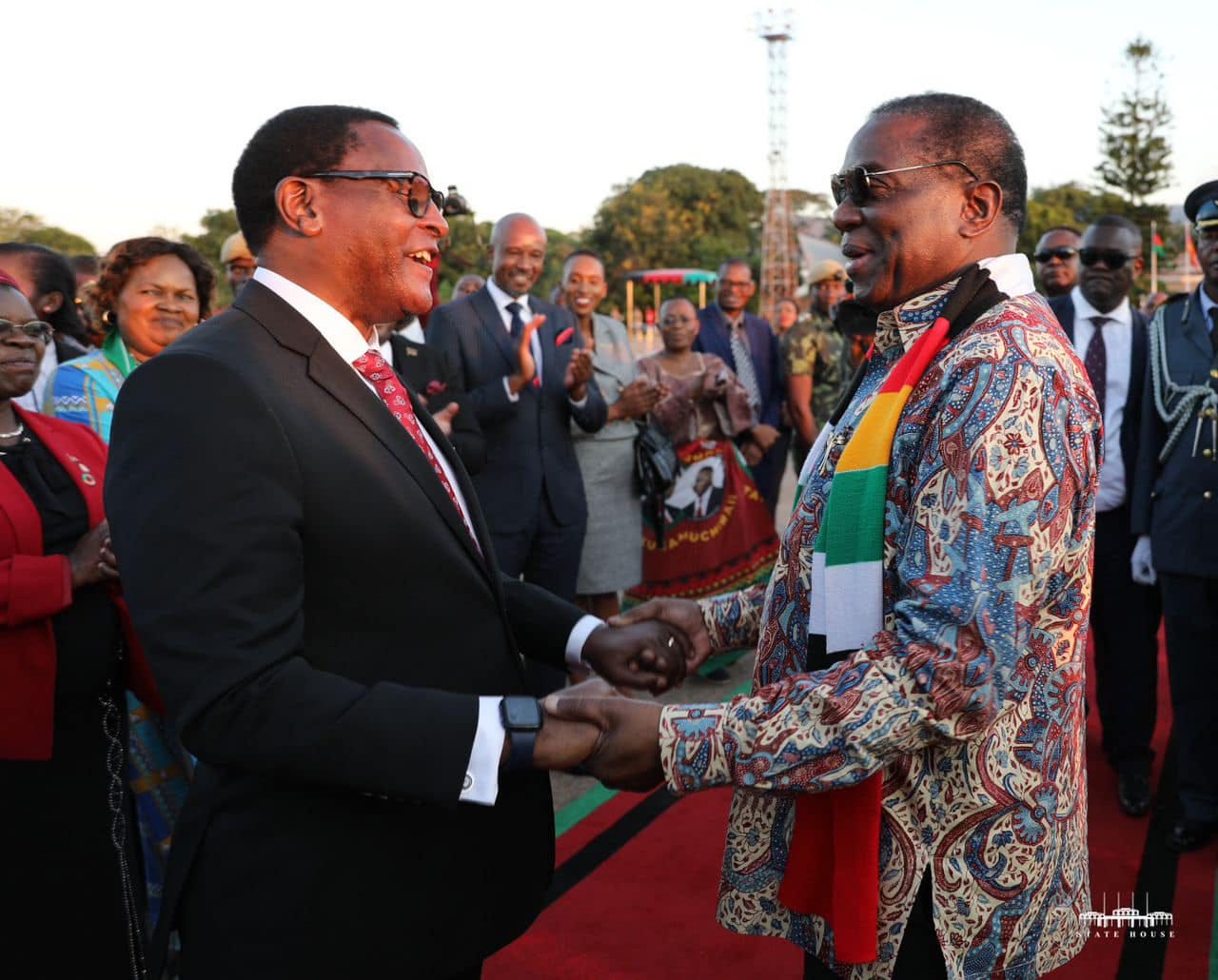Zimbabwean President Mnangagwa Concludes Historic State Visit to Malawi
Zimbabwean President Emmerson Mnangagwa has concluded a historic three-day state visit to Malawi, writes Winston Mwale.
LILONGWE, Malawi — Zimbabwean President Emmerson Mnangagwa has concluded a historic three-day state visit to Malawi, writes Winston Mwale.
“We have, over the past three days, renewed the shared optimism that exists between our two countries,” said Malawi President Lazarus Chakwera in a statement on Friday.
During the bilateral negotiations yesterday, the two leaders ratified resolutions agreed upon at the 11th session of the Malawi-Zimbabwe Joint Permanent Commission of Cooperation early this week.
“These resolutions are purposely shaped to address mutual political, economic, and social developments upon which our cooperation hinges,” Chakwera said.
“They also extend to regional, continental, and international issues of mutual concern to the two countries.”
The two leaders have agreed to strengthen cordial relations through the Malawi-Zimbabwe Joint Permanent Commission of Cooperation.
They have also agreed to improve trade mechanisms by removing barriers that impede efficient commerce between people and business entities on both ends.
“Those responsible for the realization of these resolutions will immediately hit the ground running so that we implement the same to the benefit of both countries,” Chakwera said.
The two leaders also discussed ways to improve cooperation in areas such as agriculture, education, health, and security.
“We are committed to working together to build a stronger and more prosperous future for our two countries,” Chakwera said.





An amicable visit it would seem. It is important that the trade and economic ideas are followed up carefully. International trade is in a convertible currency such as the US dollar. Both Malawi and especially Zimbabwe have unstable currencies which in trade terms leads to the import of inflation with all its harmful effects.
Currency stabilisation must be top priority with trade expansion following closely behind.
Cost of transportation is also a disproportionate hindrance to trade. It eventually goes on the cost of goods. Hauliers must not be a hindrance to international trade. They can break a deal behind which are many productive jobs.